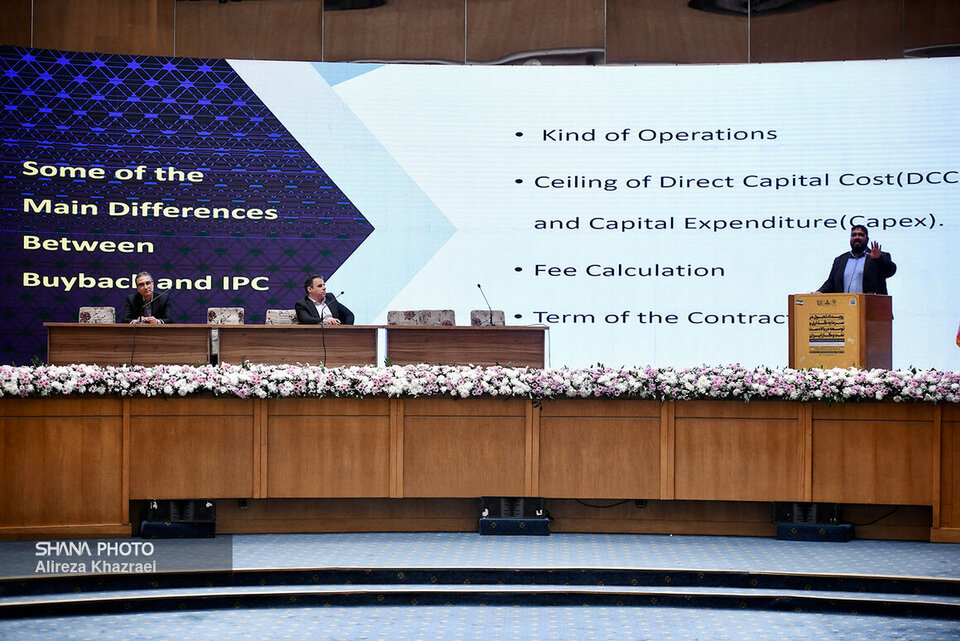Hatef Sattari, head of foreign contracts at the legal department of the National Iranian Oil Company (NIOC), spoke at the session titled “Introduction to IPC Contract Models” on Tuesday.
He stated that under IPC contracts, risks and profits are shared between the employer and the contractor. Compared to buyback contracts, IPC contracts have a longer duration, extending up to 20 years, as the interests of both parties are aligned.
Sattari noted that economic analysis shows IPC contracts are crucial for investment. He added that in 2023, modifications were made to this contract model, allowing investors to participate alongside exploration and production companies.
Bonus payment for extra production
Amir Salehi, deputy head of investment management at NIOC, said that under this contract model, contractors receive a bonus for each additional unit of production (per barrel of oil or thousand cubic meters of gas).
If repayments exceed the agreed-upon amount, the remaining payment is carried over to the next phase. Under IPC contracts, no payments are made until the contractor achieves initial production. The Planning and Budget Organization has now permitted higher payment ceilings in early years to reduce repayment delays.
Salehi emphasized that this amendment benefits both the government and contractors, calling it a “win-win.” The government pays less, while contractors receive repayments sooner.
Priority on gas field development
Mahmoud Qolipour, head of upstream contract coordination at NIOC’s engineering and development department, stressed that these contracts are awarded through negotiations rather than tenders. He said all government bodies collaborate to finalize agreements. When selecting fields for IPC-based development, national conditions are considered, and due to gas supply shortages, gas field development is now a priority.
Qolipour added that under this model, investors submit both technical and financial proposals.


Your Comment